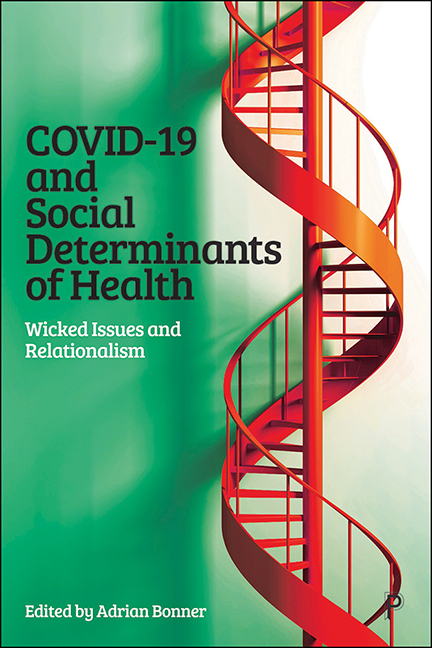Book contents
- Frontmatter
- Miscellaneous Frontmatter
- Contents
- List of figures and tables
- Notes on contributors
- Foreword
- Introduction
- Part I Wicked issues and relationalism
- Part II Regionalism and geopolitical environments
- Part III Public sector, COVID-19 and culture change
- Part IV The third sector
- Part V The case for relationalism
- Part VI Engagement and proposed changes
- Conclusion
- Appendix The Centre for Partnering
- Index
15 - Creating added value: the third sector, local and national government working together to address domestic abuse
Published online by Cambridge University Press: 18 January 2024
- Frontmatter
- Miscellaneous Frontmatter
- Contents
- List of figures and tables
- Notes on contributors
- Foreword
- Introduction
- Part I Wicked issues and relationalism
- Part II Regionalism and geopolitical environments
- Part III Public sector, COVID-19 and culture change
- Part IV The third sector
- Part V The case for relationalism
- Part VI Engagement and proposed changes
- Conclusion
- Appendix The Centre for Partnering
- Index
Summary
For us to effectively tackle domestic abuse it is essential that we take a much more holistic approach. This means that we work together in partnerships across all agencies and sectors both on an operational and strategic level. We must put people who are affected by domestic abuse at the heart of this and treat them with trust and respect.
Jacobs, 2021Introduction
This chapter will explore the wicked issue of domestic abuse and the complex challenges faced by those providing support to people affected, including victim survivors, children and perpetrators.
It has long been considered that domestic abuse is a difficult and complex issue to address. Decades of changing political agendas combined with austerity have not only meant that legislation, funding and strategic frameworks have not reflected frontline work and the needs of communities in relation to domestic abuse, but have created barriers to putting the lived experiences of survivors at the heart of addressing the root cause of domestic abuse, which is so often the root cause of all other types of abuse.
This chapter will identify the roles of, and relationships between, different stakeholders in the public and voluntary sectors, including faith-based organisations, in addressing domestic abuse, and will argue that relationalism, partnership and a coordinated community response from strategic through to local levels are the only true way to address domestic abuse.
It will seek to explore some of the key challenges faced by these sectors, including the sustainability of services and the measurement of their impact. It will consider how the thought process about what ‘good’ looks like needs to change in order to fully gauge the difference made to individual lives affected by domestic abuse.
Domestic Abuse Act 2021
The landmark Domestic Abuse Act achieved Royal Assent in April 2021, and moves towards significant change for those affected by domestic abuse, including a comprehensive definition that recognises children as victims in their own right, names coercive control as abuse, and offers improved protections to victims. The statutory appointment of the Domestic Abuse Commissioner for England and Wales ensures that government and public bodies are held to account and have a duty to cooperate.
- Type
- Chapter
- Information
- COVID-19 and Social Determinants of HealthWicked Issues and Relationalism, pp. 268 - 281Publisher: Bristol University PressPrint publication year: 2023



